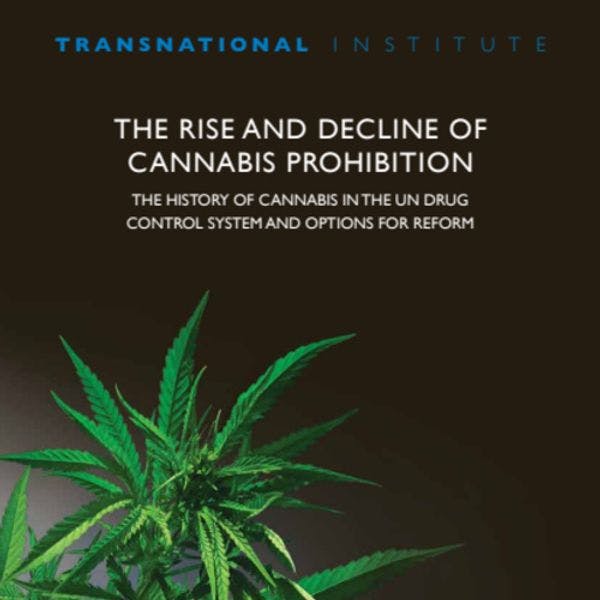L’essor et le déclin de l’interdiction du cannabis
Ce rapport décrit l’histoire du contrôle international du cannabis et comment cette substance a été incluse dans le système de contrôle actuel des Nations Unies.
Pour en savoir plus, veuillez lire les informations ci-dessous (en anglais).
Abonnez-vous à l'Alerte mensuelle de l'IDPC pour recevoir des informations relatives à la politique des drogues.
The cannabis plant has been used for spiritual, medicinal and recreational purposes since the early days of civilization. In this report the Transnational Institute and the Global Drug Policy Observatory describe in detail the history of international control and how cannabis was included in the current UN drug control system.
Cannabis was condemned by the 1961 Single Convention on Narcotic Drugs as a psychoactive drug with “particularly dangerous properties” and hardly any therapeutic value. Ever since, an increasing number of countries have shown discomfort with the treaty regime’s strictures through soft defections, stretching its legal flexibility to sometimes questionable limits.
Today’s political reality of regulated cannabis markets in Uruguay, Washington and Colorado operating at odds with the UN conventions puts the discussion about options for reform of the global drug control regime on the table. Now that the cracks in the Vienna consensus have reached the point of treaty breach, this discussion is no longer a reformist fantasy. Easy options, however, do not exist; they all entail procedural complications and political obstacles. A coordinated initiative by a group of like-minded countries agreeing to assess possible routes and deciding on a road map for the future seems the most likely scenario for moving forward.
There are good reasons to question the treaty-imposed prohibition model for cannabis control. Not only is the original inclusion of cannabis within the current framework the result of dubious procedures, but the understanding of the drug itself, the dynamics of illicit markets, and the unintended consequences of repressive drug control strategies has increased enormously. The prohibitive model has failed to have any sustained impact in reducing the market, while imposing heavy burdens upon criminal justice systems; producing profoundly negative social and public health impacts; and creating criminal markets supporting organised crime, violence and corruption.
After long accommodating various forms of deviance from its prohibitive ethos, like turning a blind eye to illicit cannabis markets, decriminalisation of possession for personal use, coffeeshops, cannabis social clubs and generous medical marijuana schemes, the regime has now reached a moment of truth. The current policy trend towards legal regulation of the cannabis market as a more promising model for protecting people’s health and safety has changed the drug policy landscape and the terms of the debate. The question facing the international community today is no longer whether or not there is a need to reassess and modernize the UN drug control system, but rather when and how to do it.
Keep up-to-date with drug policy developments by subscribing to the IDPC Monthly Alert.
Régions
Profils associés
- Dave Bewley-Taylor
- Global Drug Policy Observatory (GDPO)
- Martin Jelsma
- Tom Blickman
- Transnational Institute (TNI)
